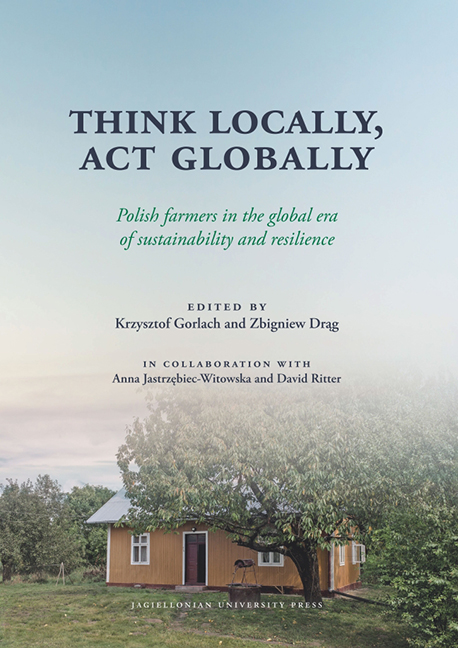Book contents
- Frontmatter
- Contents
- Family Farming: A foreword
- An Introductory Letter from the First Editor: Where the horses, cows, and even cats had their own names
- Part One Theoretical and Methodological Considerations
- Part Two Changes in the Post-Communist Transformation
- Part Three Diversification of Farmers’ Strategies
- Part Four Some Independent Studies
- Conclusion: Some Final Remarks from the First Editor
- Afterword: Renewing a Sociology of Agriculture
- Biograms
Afterword: Renewing a Sociology of Agriculture
Published online by Cambridge University Press: 16 July 2022
- Frontmatter
- Contents
- Family Farming: A foreword
- An Introductory Letter from the First Editor: Where the horses, cows, and even cats had their own names
- Part One Theoretical and Methodological Considerations
- Part Two Changes in the Post-Communist Transformation
- Part Three Diversification of Farmers’ Strategies
- Part Four Some Independent Studies
- Conclusion: Some Final Remarks from the First Editor
- Afterword: Renewing a Sociology of Agriculture
- Biograms
Summary
Based on interviews with over 3500 Polish farmers, selected with regionally representative sampling, with nearly 500 variables available for the analysis, this is the single most sweeping sociological documentation of a modern nation's agriculture with which I am familiar. The preceding reflects the Jagiellonian University's rural sociological scholarship in an ever-changing Poland: reaching back to the days of state socialism, through “Solidarność,” the so-called “shock therapy,” EU integration and the reaction to that integration. The team assembled for the project reflects several cohorts of scholarly witness to Poland's transformation. If my comments here too heavily reflect a tendency toward the view from North America, rather than Europe, or the planet as a whole, I beg forgiveness. I will make an effort to think and write both globally and locally.
This impressive and wide-ranging sociological portrait of the current state of Polish agriculture is a portrait well-grounded in historical perspective. Yet it is surely not definitive. I expect and hope that this work will generate both provocative investigations of: 1) more detailed analyses of these findings, perhaps with more qualitative analyses, as suggested by Mielczarek's Chapter 12 and Dąbrowski, Kotkiewicz, and Nowak's Chapter 14; and 2) comparative sociological analyses of other nations’ agricultural systems, especially in the EU. In that sense, though it is an extensive work to be sure, this exercise in “bringing farmers back in,” as argued in the introductory chapter, may represent a resurgent sociology of agriculture; a new beginning, rather than the final word.
Definitions matter. Much effort has been devoted over the years to defining family farming. Academics, in their need to operationalize terms at the outset of their study, usually find a way to accommodate a definition that is more or less useful to their particular interests. I would suggest, however, that this is not simply an academic exercise. The term offers a consensus framing that seems to resonate with a wide range of societies and cultures. The current identification of The Decade of Family Farming (2019–2028) by the United Nations reflects the potency of this consensus. As such, quite a diverse set of actors have an interest in “owning” the concept, that is, of being identified with family farming.
- Type
- Chapter
- Information
- Think Locally, Act GloballyPolish farmers in the global era of sustainability and resilience, pp. 691 - 704Publisher: Jagiellonian University PressPrint publication year: 2021



